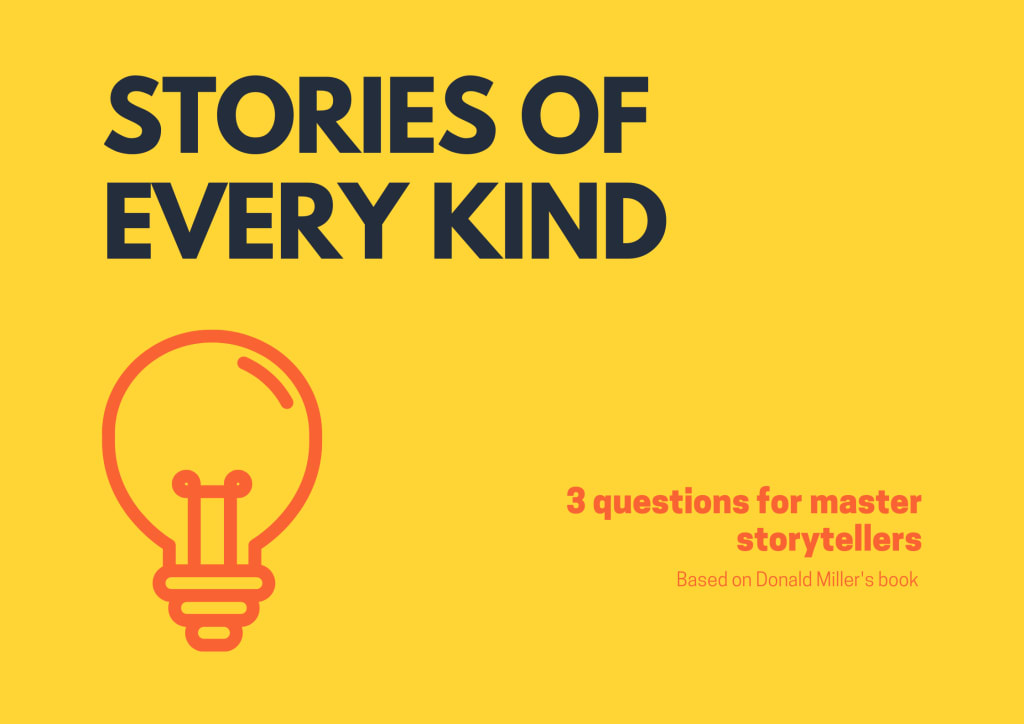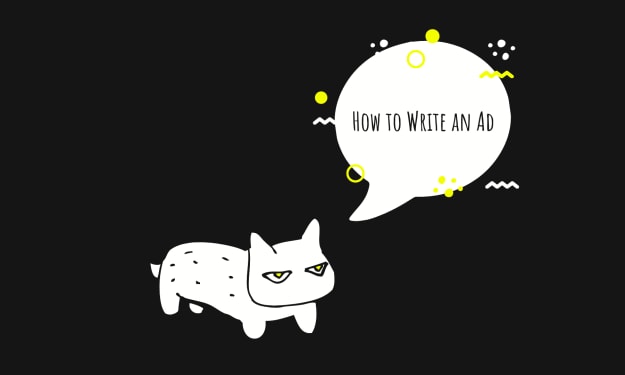Stories of every kind
3 questions for master storytellers

Stories make up our world, if we tell them right we are able to make an impact, change someone’s perspective. It is not only beneficial to other people but also to ourselves, as the trend of “being the hero in your own story” is becoming more and more visible on social media sites like TikTok. How do we tell a story that is engaging, both for us and the listener?
Donald Miller in his book Building a StoryBrand makes it clear that almost all of the stories we see nowadays are composed of narrative elements that are known to humans ever since we first started to tell them at a campfire in some obscure cave. The main seven elements are portrayed in his book, and on his site as a tool to design the perfect marketing story for the client, as he should be the centerpiece of every campaign.
This article is about three crucial questions, which each storyteller should ask himself to tell even better tales.
- What does the hero want?
- Who or what is opposing the hero?
- What will his (the hero’s) life look like after he accomplishes the task?
The hero is going out into the world to fight for something he deems valuable. The precise objective of the protagonist’s journey should be known from the start, as we, the listeners are able to rate the attainability of such a feat. From folklore and culture, we are aware that dragons are dangerous creatures, and that snakes are poisonous - this is the knowledge the listener already has. To build on that data, the storyteller needs to define the objective and the hero’s plan of getting to it.
It is at this point that we get to know the main struggles of the protagonist. Are the difficulties he is going to face internal or external? Is this a fight for the body or the soul? Is there a love interest in the mix? All of those questions need to be addressed, as there is nothing worse than a story without a clear outline, or a cause and effect chain. The hero doesn’t usually know how to approach the task ahead, so he looks for someone, who might be able to help.
After finding his master, putting in the work, he is able to accomplish the task. How does his world change, if he manages to pull it off? Can he marry the girl he was always chasing? Or maybe riches from all around the world await him at the castle, where his coronation is about to take place? The storyteller needs to move from a point of the hero’s unwellness to a point where he is well off. Dramatic stories tend to overlook that last part.
If we comply with those three story questions, we will be able to craft a great story of our own. As clarity is the domain of good writers, I think that the wants of the hero of a story, the monsters (whether internal or external) he is about the face, and the reality post-quest reality are important in establishing an understandable framework for the reader/viewer/listener.
I need to admit that Donald Miller’s storytelling is one of a kind, and it would be hard for me to attempt to replicate that sort of narrative prowess, but learning from the greats is one of the things we can, and should do. I highly recommend his books to anyone, who wants to get better at copywriting, or just general storytelling.
I would like to finish this article with a quote by G.K. Chesterton “Fairy tales are more than true; not because they tell us that dragons exist, but because they tell us that dragons can be beaten.”






Comments
There are no comments for this story
Be the first to respond and start the conversation.